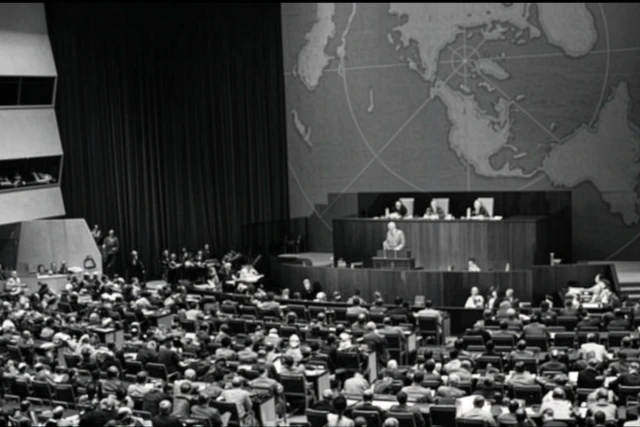UN Charter Article 80 blocks Palestinian statehood

Subject: The Legal Impermissibility of United Nations Imposition of a Palestinian State upon the Territory of Israel
I. QUESTION PRESENTED
Whether the United Nations, by action of its Security Council or General Assembly, has the legal authority to recognize or impose a sovereign Palestinian state upon territory within the boundaries of the Mandate for Palestine, considering the enduring protections for Jewish rights under Article 80 of the UN Charter.
II. SUMMARY OF ARGUMENT
No. The United Nations is legally barred from such an action. The UN Charter itself, specifically Article 80, permanently preserves the rights granted to the Jewish People under the Mandate for Palestine. These rights, which include sovereignty over the entire territory for the purpose of establishing a Jewish national home, were never extinguished by a superseding trusteeship agreement. Consequently, the UN is prohibited from altering these rights or transferring any part of this territory to a non-Jewish entity. Furthermore, the UN Charter confers no general power upon any of its organs to create or dismember sovereign states, making any attempt to do so an ultra vires act beyond its legal authority.
III. ARGUMENT
A. Article 80 of the UN Charter Permanently Vests Sovereignty in the Jewish People and Prohibits Its Alienation.
The foundational legal obstacle to UN action is Article 80 of the UN Charter. As the Charter is an international treaty, it constitutes binding international law upon the organization and its member states.
Preservation of Mandatory Rights: Article 80, often referred to as the "Jewish People's clause," explicitly functions to preserve intact all rights granted to "any states or any peoples" under existing mandates following their expiry. The Mandate for Palestine, established by the San Remo Conference of 1920 and confirmed by the League of Nations, granted exclusive political rights to the Jewish People for the purpose of reconstituting their national home in the entire territory of Palestine.
The Failure of the Trusteeship Mechanism: The only legal mechanism by which these rights could have been altered was through a trusteeship agreement under Chapter XII of the UN Charter, which would have converted Palestine into a trust territory. The window for such an agreement was the three-year period between the Charter's entry into force (October 24, 1945) and the expiry of the Mandate (May 14-15, 1948). No such agreement was ever concluded.
The Legal Consequence: As a direct result, the rights vested in the Jewish People under the Mandate—including the critical rights of settlement and immigration under Article 6 of the Mandate, and the overarching right to sovereignty—remained in full force and effect. The UN, by virtue of Article 80, is legally committed to upholding these rights and is expressly prohibited from altering them. Any UN action to allot territory within the Mandate's boundaries to a non-Jewish entity, such as the Palestinian Authority, constitutes a direct violation of its own Charter.
B. The United Nations Lacks the Sovereign Authority to Allot Territory or Create States.
The UN's legal incapacity to impose a Palestinian state is further grounded in its fundamental nature as an organization of sovereign states, not a world sovereign.
Non-Sovereign Status: The League of Nations and its successor, the United Nations, never held sovereign title to the land of the Mandate for Palestine. Their role was administrative. As a non-sovereign, the UN lacks the inherent power to transfer title to territory that it does not own, especially when that territory is already vested by law in another party—the Jewish People.
No Charter Grant of Power: There is no provision in the UN Charter that grants the Security Council, General Assembly, or Trusteeship Council the power to create a new independent state. The UN's powers are those explicitly conferred upon it by its founding treaty, and this power is conspicuously absent.
*Reductio ad Absurdum: If the UN possessed the power to create a state, it would logically possess the inverse power to dismantle or "de-create" an existing one. This would effectively transform the UN into a world legislature with the ability to alter the global political order at its volition, a power it was never granted and which would fundamentally undermine the sovereignty of its own member states, including the State of Israel.
IV. CONCLUSION
For the foregoing reasons, any attempt by the United Nations to recognize or impose a Palestinian state upon territory within the boundaries of the Mandate for Palestine is legally invalid. It violates the enduring protections for Jewish rights guaranteed by Article 80 of the UN Charter and constitutes an action beyond the legal authority and competence of the United Nations and its organs. Such an act is not only void of legal effect but also represents a fundamental breach of the UN's own governing treaty.

Aurthur is a technical journalist, SEO content writer, marketing strategist and freelance web developer. He holds a MBA from the University of Management and Technology in Arlington, VA.
You might also like to read this:











